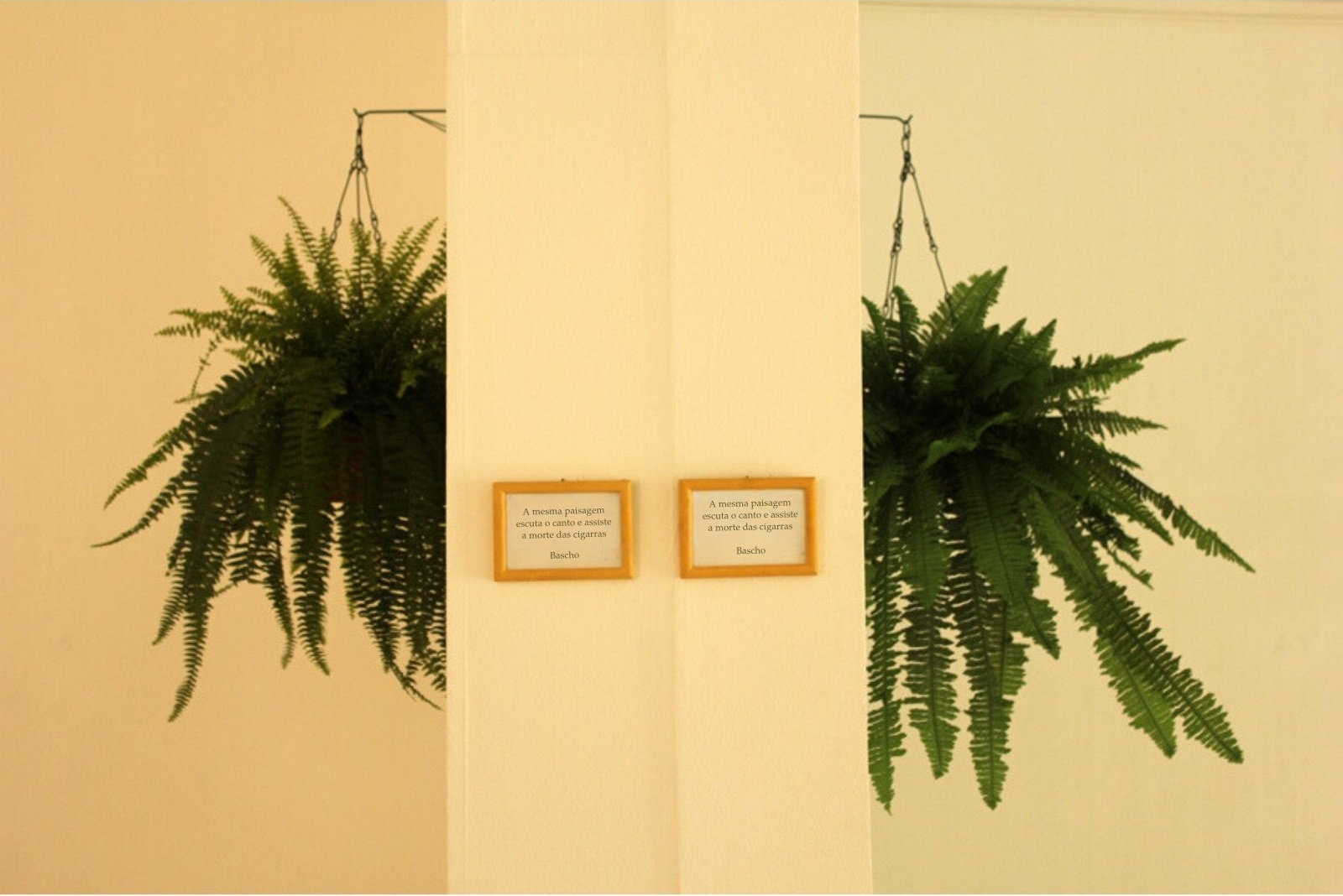Qual é o estilo das questões de interesse? Duas conferências sobre filosofia empírica
Main Article Content
Abstract
It has become of great interest to inquire into the history of what Whitehead called "bifurcation of nature". This history is possible provided we connect art history with science history to dig into the reasons why the distinction between primary and secondary qualities has been thought so central since the time of Locke all the way to the present debates around "naturalism". Those lectures try to sketch this history, thus defining a second empiricism in the line of the one proposed by William James, one that is defined more by "matters of concern" than by "matters of fact", whose very peculiar aesthetics is being explored.
Downloads
Article Details

This work is licensed under a Creative Commons Attribution-NonCommercial 4.0 International License.
Authors who publish in this journal agree to the following terms:
Authors maintain the copyright and grant the journal the right of first publication, the work being simultaneously licensed under the Creative Commons Attribution License which allows the sharing of the work with recognition of the authorship of the work and initial publication in this journal.
Authors are authorized to take additional contracts separately, for non-exclusive distribution of the version of the work published in this journal (eg publish in institutional repository or as a book chapter), with acknowledgment of authorship and initial publication in this journal.
Authors are allowed and encouraged to publish and distribute their work online (eg in institutional repositories or on their personal page) at any point before or during the editorial process, as this can generate productive changes as well as increase the impact and the citation of the published work.
References
ALPERS, Svetlana. The Art of Describing. Chicago: University of Chicago Press, 1983.
ASHMORE, Malcolm; EDWARDS, Derek; POTTER, Jonathan. The Bottom Line: the Rhetoric of Reality Demonstrations. Configurations. pp. 1-14, 1994.
CRARY, Jonathan. Techniques of the observer. On vision and modernity in the nineteenth century. Cambridge, Mass: MIT Press, 1990.
DEBAISE, Didier. Un empirisme spéculatif: Lecture de Procès et Réalité. Paris: Vrin. 2006.
DIJKSTERHUIS, E.J. The Mechanization of the World Picture Pythagoras to Newton. Princeton: Princeton University Press, 1961.
DESCOLA, Philippe. Par delà nature et culture. Paris: Gallimard, 2005.
FLECK, Ludwig. Genesis and Development of a Scientific Fact. Chicago: The University of Chicago Press, 1981.
HARTMANN, Frank Hartmann. “Humanization of Knowledge through the Eye” In: LATOUR, Bruno; WEIBEL, Peter (ed.) Making Things Public. Atmospheres of Democracy. Cambridge, Mass: MIT Press, 2005, pp. 698-707.
IVINS JR., Williams M. On the rationalization of sight: with an examination of three Renaissance texts on perspective. De artificiali perspectiva, [The artificial perspective]: reproducing both the first edition (Toul, 1505) and the second edition (Toul, 1509). New York: De Capo Press e Plenum Press. pp 8-9, 1973.
LATOUR, Bruno. Drawing Things Together. In: LYNCH, Mike; WOOLGAR, Steve (ed.) Representation in Scientific Practice. Cambridge, Mass: MIT Press, 1990.
_____. Gabriel Tarde and the End of the Social. In: JOYCE, Patrick (ed.) The Social in Question: New Bearings in History and the Social Sciences. Londres: Routledge, 2002.
_____. Politics of Nature: How to Bring the Sciences into Democracy. Cambridge, Mass: Harvard University Press, 2004.
_____. Why Has Critique Run Out of Steam? From Matters of Fact to Matters of Concern. Critical Inquiry, v. 30, n. 2, pp. 15-20, 2004.
_____. From Realpolitik to Dingpolitik. How to Make Things Public. An Introduction. In: LATOUR, Bruno; WEIBEL, Peter Weibel (ed.) Making Things Public: Atmospheres of Democracy. Cambridge, Mass: MIT Press, 2005.
_____. Reassembling the Social. An Introduction to Actor-Network Theory. Oxford: Oxford University Press, 2005.
_____. What is Given in Experience? A Review of Isabelle Stengers ‘Penser avec Whitehead. Boundary 2. pp. 222-237, 2005.
LATOUR, Bruno; WOOLGAR, Steve. Laboratory Life. The Construction of Scientific Facts. 2ª ed. Princeton: Princeton University Press, 1986.
LATOUR, Bruno; WEIBEL, Peter. (ed) Iconoclash. Beyond the Image Wars in Science, Religion and Art. Cambridge, Mass: MIT Press, 2002.
_____. Making Things Public. Atmospheres of Democracy. Cambridge, Mass: MIT Press, 2005.
LOCKE, John. Ensaio sobre o entendimento humano. (Coleção Os Pensadores) São Paulo: Abril Cultural, 1978.
_____. Ensaio sobre o entendimento humano. 5ª ed. Lisboa: Fundação Calouste Gulbenkian, 2014.
MILOSZ, Czeslaw. A Theological Treatise. Spiritus: A Journal of Christian Spirituality, v. 2, n. 2, Outono, The Johns Hopkins University Press, pp. 123- 204, 2002.
SLOTERDIJK, Peter. Foreword to the Theory of Spheres. In: OHANIAN, Melik; ROYOUX, Jean Christophe (ed.) Cosmograms. New York: Lukas and Sternberg, 2005.
STENGERS, Isabelle. L’effet Whitehead. Paris: Vrin, 1994
_____. The Invention of Modern Science. Minneapolis: University of Minnesota Press, 2000.
_____. Penser avec Whitehead: Une libre et sauvage création de concepts. Paris: Gallimard, 2000.
TARDE, Gabriel. Social Laws: An Outline of Sociology. Traduzido por Howard C. Warren. Kitchener: Batoche Books, 2000.
_____. Monadologia e Sociologia e outros ensaios. Tradução de Paulo Neves. São Paulo: Cosac Naify, 2007.
UEBEL, Thomas E.; CARTWRIGHT, Nancy; FLECK, L. Otto Neurath: Philosophy Between Science and Politics. Cambridge: Cambridge University Press, 1996.
WHITEHEAD, Alfred North. Concept of Nature. Cambridge: Cambridge University Press, 1920.
_____. Modes of Thought. New York: The Free Press, 1938.
_____. Science and the Modern World. New York: Free Press, 1967.
_____. O Conceito de Natureza. Tradução de Julio B. Fischer. São Paulo: Martins Fontes, 1994.
_____. A Ciência e o mundo moderno, São Paulo: Paulus, 2006.

